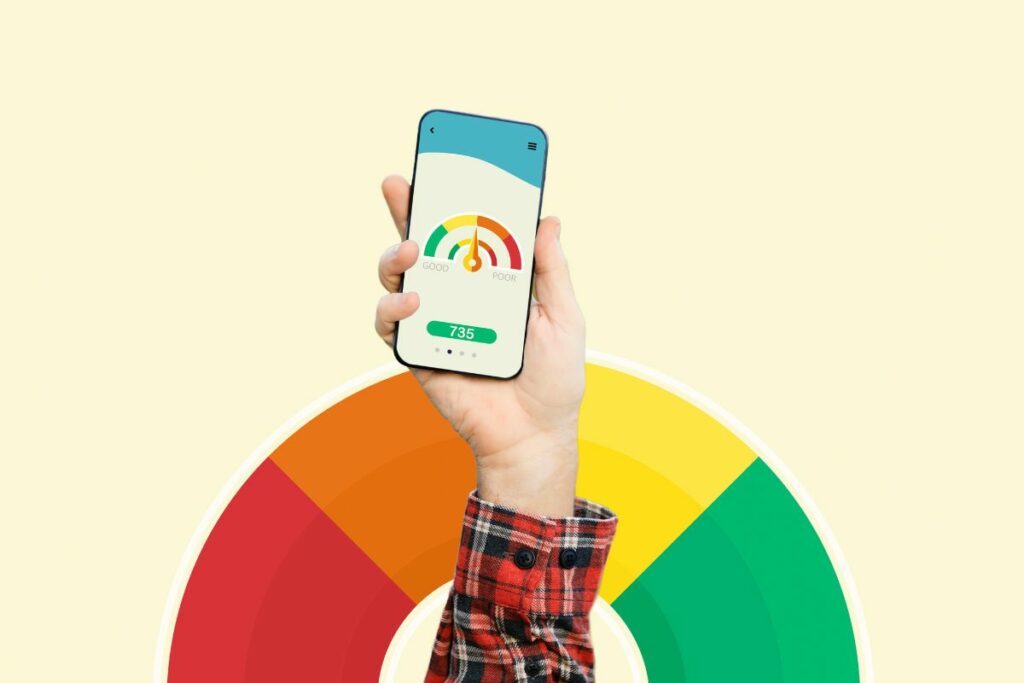
If you’ve recently checked your credit score, you might find yourself wondering what the number means. Or maybe you want to know how you can increase your credit score so you can achieve your financial goals. Different lenders have different ideas about what credit score is good versus excellent, or average versus poor. We are here to clear things up. We’ve laid out some general guidelines so you know what to expect when dealing with any given score over 600. We’ve also provided some tips on how to move yourself up through the credit score ranges.
600-649 credit score
A credit score between 600-649 is generally considered to be below average. In this credit score range, it's difficult to secure certain types of credit accounts. This is especially true if they involve larger amounts of money. For example, it is harder to get approved for a car loan or a conventional mortgage without mortgage default insurance.
Read More: How to Get a Mortgage with a Bad Credit in Canada
Furthermore, you won’t be eligible for an insured mortgage. An insured mortgage is one with a down payment under 20%. However, a 600 credit score should still allow you to qualify for lower-tier credit cards and loans. These types of credit cards are often called credit-building products or cards. You can find them when you compare credit cards with Hardbacon. Just know that it will have a lower credit limit and a higher interest rate.
If your credit score is less than 600, you might not qualify for most traditional credit cards on the market. A good alternative is a secured credit card, like one from Refresh or Plastk, or a prepaid credit card, like KOHO.
How to get in the credit score range of 600-649
If your credit score is below 600, take a look at your credit utilization and payment history. Constantly missing payments or maxing out your credit cards causes your credit score to take a hit. If you’re just starting to repair your credit score, make a list of all your credit accounts, the payment due dates and the balances due. This way you can budget appropriately. Staying organized makes it easier to ensure that you don’t miss anything and accidentally lower your credit score.
Read More: How to Make a Budget With Hardbacon
What if you don’t currently have any credit-building credit cards or other open loans? You might want to apply for a credit card designed to help rebuild your credit. It may seem counterintuitive to take out credit when you have bad credit. However, these cards are built to help you improve your credit score. They are easy to qualify for, generally have additional stipulations to ensure that you repay all money, and can show future lenders that you’re now responsible with credit.
Read More: The 16 best credit cards to rebuild your credit in Canada
650-659 credit score
If you fall between the credit score range of 650-659, you’ll generally be eligible for most types of loans. However, because your score is on the low end of the “fair” category, you won’t qualify for competitive interest rates and will generally only be approved for a modest-sized loan.
Unfortunately, a 650 credit score still won’t qualify you for an insured mortgage, either. While your score isn’t necessarily bad, it’s worth trying to improve it. If you need access to credit like a large loan or hoping to buy a home, a better interest rate can save you thousands of dollars on interest charges. Sometimes tens of thousands of dollars on a mortgage.
Don't believe us? Use the Hardbacon Mortgage Calculator and the Car Loan Calculator to see the difference your interest rate makes.
How to get in the range of 650-659
Since the 650-659 credit score range is generally considered average, it’s also relatively easy to achieve, you just need to be consistent. Make an effort to pay off all your bills on time. You can set up automated payments so you don't have to worry about forgetting. You also need to prioritize paying down any collection accounts.
Beyond that, aim for a low credit utilization by trying to pay off your credit cards since this will improve your score. If your credit limit is close to what you spend monthly on necessities, you may want to try paying your credit card more frequently or in advance so that it has a low balance by the time your statement is posted; which is when your credit utilization ratio is taken into account.
660-679 credit score
Although a credit score range of 600-679 is still on the lower end of average, it begins to unlock more options for you. Generally speaking, you’ll need a minimum credit score of around 670 to qualify for a car loan, though of course requirements will vary by lender. At this point, you still won’t be eligible for an insured mortgage, either.
Unfortunately, while a 660 credit score makes it easier to qualify for most types of loans, it still isn’t high enough to be offered competitive interest rates. Nevertheless, access to a variety of loans will make it easier to get credit when you need it, diversify your credit history, and ultimately allow you to build your credit score.
Getting to a range of 660-679
Since a credit score range of 660-679 is considered average, it isn’t especially difficult to achieve. Generally, you’ll just need to make the minimum payment, or ideally more, on each credit account for a while. You may also find that your credit score dramatically increases if you pay off most of your balances since you’ll be left with a lower credit utilization ratio, which is good. Your credit utilization ratio is how much you owe on credit cards and lines of credit relative to the credit limits. The less you owe, the better.
680-699 credit score
If you fall into the credit score range of 680-699, most lenders will consider you in the “good” category. You’ll find it easy to qualify for most types of loans, though your score is not so high that you’ll receive the lowest interest rates. You may also qualify for a mortgage at this point. By law, you’ll need a 680 credit score or higher to qualify for an insured mortgage (i.e. a mortgage with a less than 20% down payment).
Getting to a credit score of 680-699
In order to reach a credit score range of 680-699, it’s important to make sure that you’re paying all bills on time. You should also avoid hard credit checks if possible. These show up as “inquiries” on our credit file and can negatively affect your score for up to 2 years.
700-719 credit score
A credit score of 700-719 is in the “good” category, but it’s still on the lower end of the spectrum. However, it is still quite easy to move up the ladder. While you won’t necessarily qualify for the most competitive interest rates, a 700 credit score will grant you access to a wide variety of loans. Plus, if you’re on top of your finances, make payments on time, and don’t take out any new loans, you’ll find it relatively easy to move into the “very good” credit score range relatively quickly.
Getting to a credit score range of 700-719
Fortunately, as long as you put in consistent work, it’s relatively simple to hit a credit score range of 700-719. Creditors will want to see an established history of regular payments, low balances on your credit cards/lines of credit, and responsible financial decisions. For example, don’t apply for luxury car financing if it isn’t financially viable. As long as you follow these guidelines, your score is sure to eventually reach 700-719.
720-729 credit score
By the time you hit the credit score range of 720-729, you’ll start to fall into the middle range of the “good” category. It’ll become easier for you to be approved for most loans and you’ll likely begin to receive better interest rates; though you still won’t quite receive the lowest interest rates available. However, a 720 credit score means that you likely still have a hit or two on your credit report or simply just have a shorter credit history.
Getting to a range of 720-729
In order to build your credit score up so that it meets the 720-729 range, you’ll want to maintain as many existing credit accounts as possible. You should especially shy away from closing credit cards that have been open for a long time. Doing so could potentially cause your score to plummet. You’ll also want to make sure that you make all payments on time and avoid opening new cards or applying for other loans.
730-749 credit score
A credit score ranging between 730-749 is generally considered to be on the higher end of “good”. While you won’t qualify for dirt-cheap interest rates, you’ll have no issues with securing most types of loans. But only as long as you can reasonably afford them, obviously. Since getting to a 730 credit score requires lots of good habits, you’re likely to continue rising up the ranks and reaching the “excellent” credit score range over time.
Getting to a credit score range of 730-749
Although a credit score range of 730 may not be breathtaking, it’s difficult enough to achieve. It requires you to put in sustained effort over time. In other words, to reach this range, you’ll want to form good credit-building habits. Keep on top of your payments, and avoid applying for new loans, especially if you have a high-profile loan application coming up, such as a mortgage application.
Ensure that your oldest credit accounts remain open, and regularly check for and report any fraudulent activity. While these tips won’t get you into the 730-749 credit score range overnight, you’re sure to reach it if you turn these pointers into habits.
750-779 credit score
Once you’re in the 750-779 credit score range, you’ll start to fall under the “excellent” category. While exact metrics vary by your credit score rating company, this generally means that you only have the occasional minor issue on your credit report. If you have a 750 credit score or higher, you’ll find it easy to be approved for loans with extremely competitive interest rates. Great news if you want to apply for a mortgage!
Getting to a range of 750-779
In order to reach a credit score of 750-779, you’ll want to eliminate any potential issues on your credit profile. Avoid credit card churning and other frequent hard inquiries. If you have any large balances on your credit cards, prioritize paying them down which, in turn, will improve your credit utilization.
Use the Hardbacon Debts Repayment Calculator (Avalanche Method) to help pay down your debts and save on interest charges.
780-799 credit score
Once you’re in the “excellent” range, you generally don’t have to worry about substantially increasing your credit score. However, each lender has different criteria for what constitutes “excellent”. If you’d like to give yourself more leeway, you can aim for a credit score range of 780-799, which will all but guarantee that you can access loans at low-interest rates.
Getting to a credit score range of 780-799
Getting your credit score to 780 or higher can be tough, but totally worth it. You’ll want to make sure that you don’t have any negative factors on your credit report. Although a 780 credit score only requires an 86-91% perfect credit account, so there is a small amount of leeway for hiccups.
A perfect score requires a long-standing payment history and a diversified credit portfolio. Since it can be difficult to work on those two factors in the short-to-medium term, you’ll need to accrue every last point you can get from other factors, such as keeping your credit utilization as low as possible.
800-849 credit score
A credit score in the 800-849 range is extremely impressive. While your score can still technically improve, it’s high enough that you’ll have no problem securing loans with the lowest interest rate possible, as long as the principal is a good fit for your income level.
Get the best rates with Harbacon's Mortgage, Credit Card, and Loans comparison tools.
Getting to a credit score range of 800-849
Getting your credit score between 800-849 can be tough. If you’re aiming for such a high score, it’s a good idea to order a detailed credit report to understand exactly what factors are being held against you. Then, work on fixing everything that you possibly can, like high credit utilization. Avoid hard credit checks and wait out the clock on any existing hits against your credit score. Slowly but surely, you’ll reach an 800 credit score.
Read More: 10 Ways to Get Your Credit Score for Free in Canada
850-899 credit score
Depending on the scoring model used by credit bureaus, the top score either maxes out at 850 or 900. Either way, scoring between 850-899 is very impressive. So long as you don’t have too much credit easily accessible in comparison to your income, you’ll have no problem qualifying for loans. An 850 credit score will also let you enjoy highly competitive interest rates, saving you money in the long run.
Getting to a range of 850-899
Since it’s so difficult to reach a credit score of 850-899, you’ll need to be fully aware of, and on top of, your credit accounts. While we’d recommend incorporating all of the habits mentioned above, especially keeping your credit utilization low and paying all bills on time, you may also want to order a detailed credit report to ensure that there are no mistakes or fraudulent activities being held against you.
900 credit score
Depending on the credit score model of the reporting agencies, a score of 900 may not be possible—TransUnion’s maximum credit score is 850. However, Equifax’s top score is 900, so it is technically possible to obtain a sky-high credit rating. While there is virtually no difference between a credit score of 898 versus 900 beyond bragging rights, you’ll still have access to a wide variety of loans and extremely competitive interest rates.
Getting to a perfect credit score of 900
If you’re committed to getting a 900 credit score, you’ll need to buckle up for a long ride. In addition to all the steps recommended above, we highly recommend that you take out a variety of loan types to diversify your credit profile, then avoid any new hard credit checks.
You’ll also need to play the long game. It’ll likely take a year or two for the hard inquiries from your different loans to stop impacting your score. In the meantime, set up automated payments so that you won’t risk accidentally missing a payment and having your score drop.



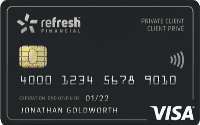
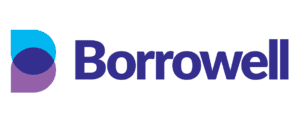
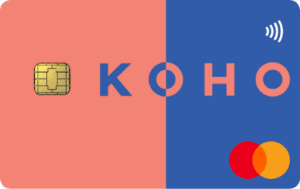
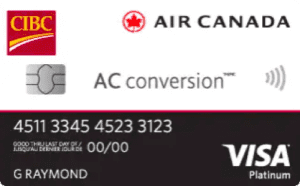






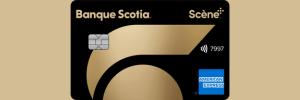

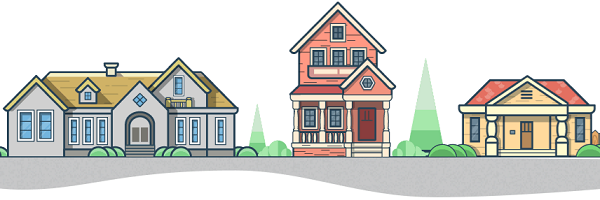

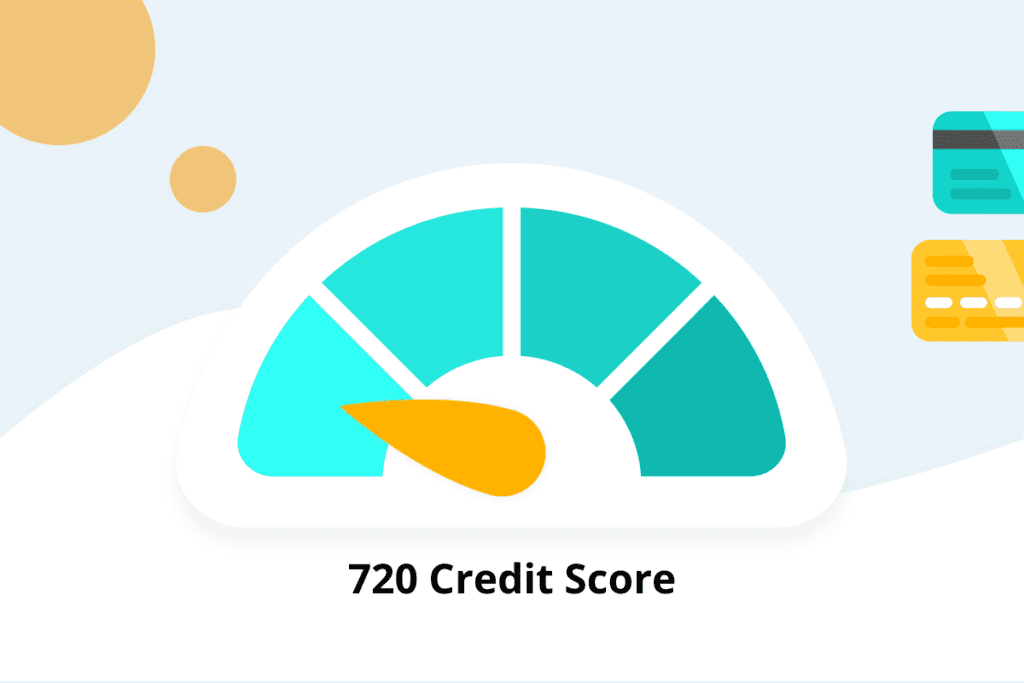




About The Author: Arthur Dubois
Passionate about personal finance and financial technology, Arthur Dubois is a writer and SEO specialist at Hardbacon. Since his arrival in Canada, he’s built his credit score from nothing.
Arthur invests in the stock market but doesn’t pay any fees because he uses National Bank Direct Brokerage online broker and Wealthsimple’s robo-advisor. He pays for his subscriptions online with his KOHO prepaid card, and uses his Tangerine credit card for most of his in-store purchases. When he buys bitcoins, it’s with the BitBuy online platform. Of course it goes without saying that he uses the Hardbacon app so that he can manage all of his finances from one convenient place.
More posts by Arthur Dubois